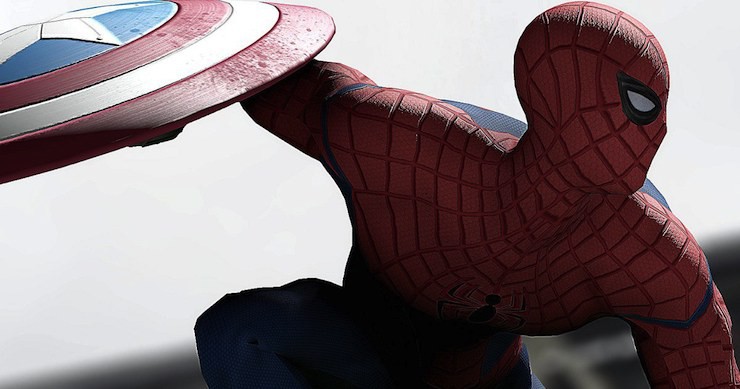Our brand new Spider-Man, as introduced in last year’s Captain America: Civil War, is only fifteen years old. Take that in for a moment. He is fifteen. A decade-and-a-half old. He wasn’t even born in the 20th century, which is a first for the Marvel Cinematic Universe.
It’s exciting because none of the previous screen Spider-Mans have been truly teenage-like (mostly because they were being portrayed by adults). And it’ll be great for the current audience of kids, who can view Peter as more of an avatar. But the really cool part? This Spider-Man grew up in an age full of superheroes—and it’s bound to shape his worldview in a way that these films have never been able to address before.
We know that the MCU had a concept of superheroes before the modern era—Captain America was revealed post-World War II as an enhanced super soldier, and Ant-Man was a rumored hero in the Cold War, even if no one ever found any proof. So it’s wasn’t impossible to conceive of super peoples, even if they didn’t have much to do with everyday life.
Peter Parker was likely born in the year 2000. The MCU films have largely existed in real time—meaning however much time has passed between films, the same amount of time passes in their universe. So Peter Parker was eight years old when Tony Stark told the world that he was Iron Man back in 2008. And that a month or so later, the Hulk and Abomination tore up Harlem, a short subway ride away from Peter’s home in Queens. (I’m assuming that he has lived in Queens roughly his whole life until it’s mentioned otherwise; it’s possible that his parents lived close to May and Ben prior to their deaths.) Then, when Peter was roughly eleven or twelve, he looked out the window of their apartment building and saw explosions and strange flying creatures over Manhattan. The Battle of New York would have been immediate to him, and to everyone he knew.
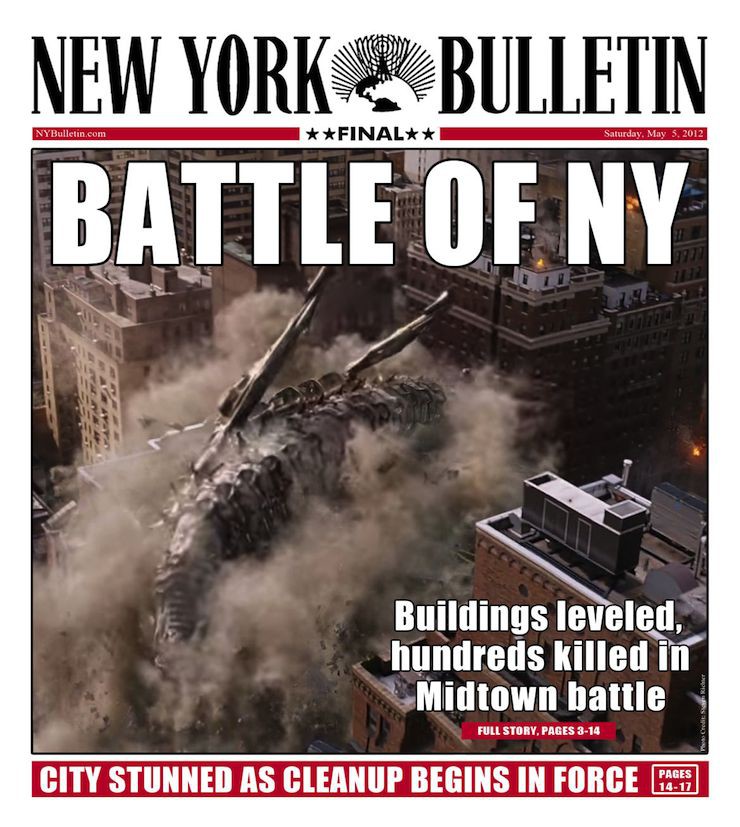
This means that Peter Parker has grown up in a world where super powered people have basically always been around. Moreover, he has grown up in a world where more of them are coming out of the woodwork every day. These are the heroes for his generation. Instead of a never-ending stream of superhero media, Peter’s lot are growing up with the real deal, and are likely every bit as obsessed as fans are on our side of the fence. Kids wandering school halls with Captain America shield backpacks, papering their lockers with paparazzi photos of the Avengers, dressing up for Halloween as their favorite member of the team. Adults who frequent internet hubs to trade theories on how Mjolnir works, who have tattoos of Widow’s hourglass and Hulk’s silhouette, who send applications into every open position at Stark Industries “just in case.”
It’s part of the reason why Peter’s meet cute with Tony Stark in the middle of Civil War works so well—Peter is clearly completely familiar with Tony, and not just because he happens to be a famous engineer and fellow tech nerd. Peter knows Iron Man. Old Shellhead has already been around for half the kid’s life.
With that in mind, Peter’s decision to become Spider-Man following the emergence of his powers isn’t simply a given according to his origin story—it’s logical. What else is he going to do with his abilities when he has an ample number of examples to follow? And this is before Tony Stark showed up on his doorstep and volunteered to make his persona a bit more official by upgrading him with a brand new suit and his own logo.
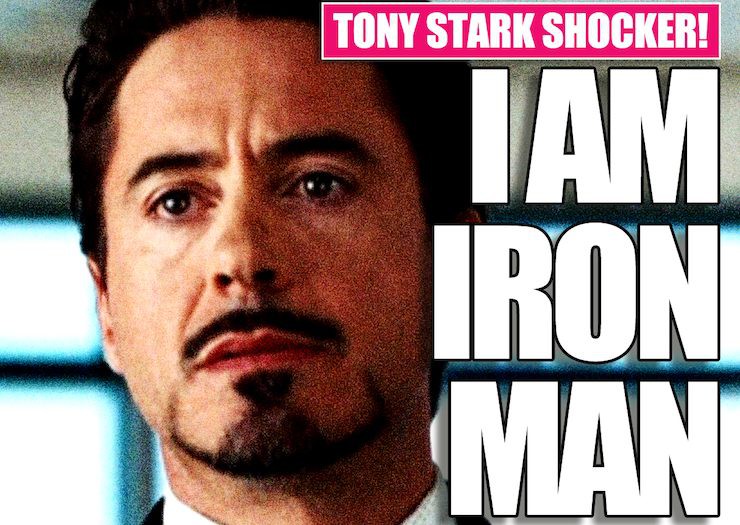
Of course, Peter Parker’s youth means that his cultural touchstones are far different from that of his superhero peers. Which begs an interesting query: In a world where superheroes are part of the IRL zeitgeist, what sorts of mass media are kids consuming?
Spider-Man’s comment about The Empire Strikes Back being a really “old” movie makes it clear that Star Wars isn’t really on his radar in a big way. (This makes a lot of sense, even with the recent release of The Force Awakens; by Peter’s timeline, he received his powers in roughly November of 2015, making it highly unlikely that he had time or inclination by December to go see Episode VII in theaters.) There are other big properties and companies currently turning out blockbusters—Star Trek, Fast and the Furious, Disney and Pixar films, James Bond and Harry Potter. But nothing fills the gigantic gap left by the influx of superhero media that we’ve seen in the 21st century so far.
We cannot assume that DC Comics are a thing in this universe as the chances of their characters ever being mentioned in canon are slim (for rights reasons), which is basically the same as not existing. Other Marvel properties that don’t apply to the MCU continuity (The Fantastic Four, X-Men) can’t exist as fiction because Marvel will want to keep the door open for deals and rights reacquisition, especially now that it’s already proved useful in Spider-Man’s (and Scarlet Witch’s) case.
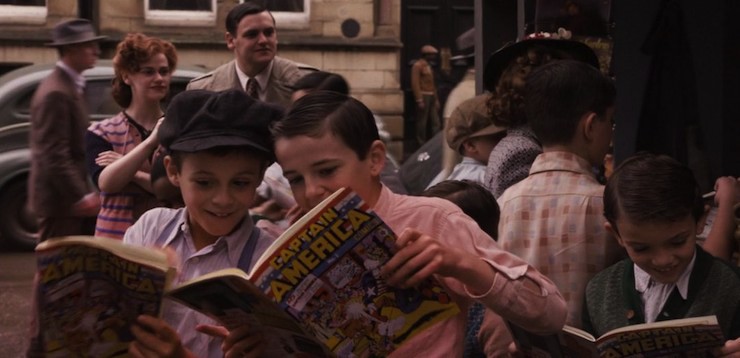
We know that comics themselves were popular in the MCU during Cap’s tenure—there is a series featuring a fictionalized version of Steve Rogers being produced during WWII, and also a radio show, so it’s likely that superhero-type media evolved from there. Perhaps they have some comparable figures, but they don’t seem popular enough to be prevalent in general culture. Tony Stark is famous enough to be the subject of biopics and such, which we know thanks to the casting of Nathan Fillion as Wonder Man/actor Simon Williams in Guardians of the Galaxy Vol. 2—his cameo never made it to screen, but director James Gunn wants us to consider this poster as canon:
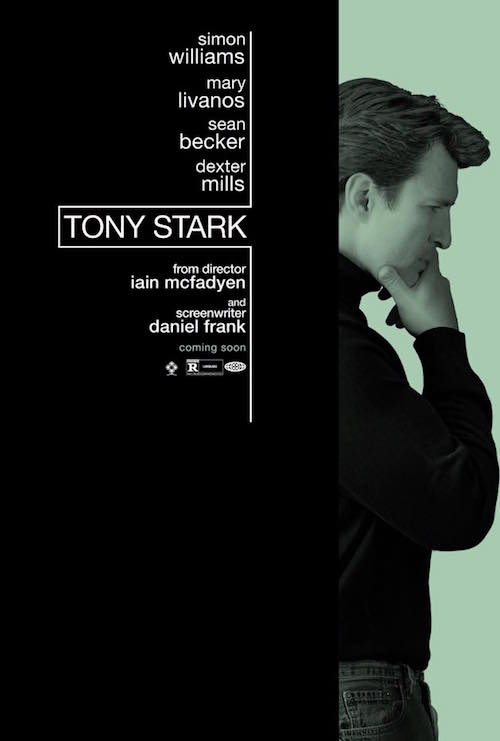
It’s entirely possible (more like probable) that there are filmmakers clambering for the chance to adapt these Avenger-fought battles for film or mini series, but it creates a different environment entirely because all of these works would be “Based On A True Story.” Cathartic for some viewers, informative or misleading to some, and grossly inappropriate to others. It is also completely possible that the current Avengers Assemble cartoon that Disney is running could be found in their universe, a fictionalized version of the team made for kids.
All of these possibilities lead to a different pop culture landscape for Peter and his contemporaries. And that’s also without asking how much Stark Tech gets into the hands of the public each year—if these kids have the ability to buy Stark smartphones in the same stores as the latest iPhone, that’s a horse of a different color all the way around. (A deleted scene from The Avengers showed viewing screens and interfaces on the streets of New York that at least looked like Stark Technology, suggesting that Stark Industries might have a commercial side that provides pretty things to everyday consumers.) Are these kids growing up on virtual reality? What about Tony Stark’s therapy app—will it be an aid used by counselors at Peter’s school? What sort of groups have developed as a result of being exposed to aliens and gods and monsters? Is there a black market for fake super-soldier type drugs, and do kids try to get their hands on them?
There’s also that pesky fact of frequent invasion forces coming to Earth and blowing things up. When you set the current global stage with a minefield of unknown enemies and world leaders who actually consider nuking New York City in an effort to contain an attack, the problems of individual people kinda seem like small beans. And that’s when you realize…
…what those people could actually use in their lives is a friendly neighborhood Spider-Man.
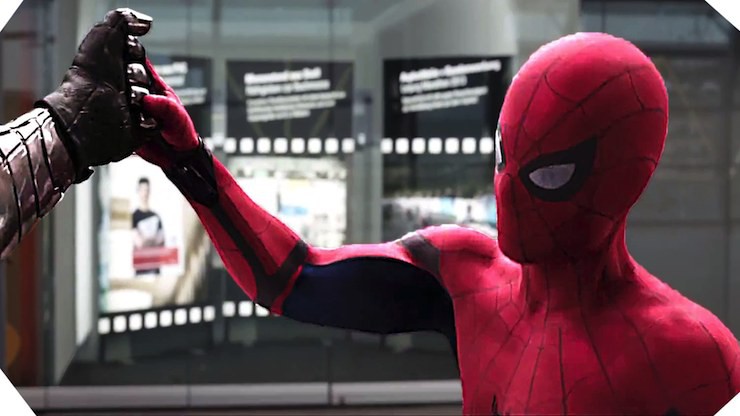
In that context, the web-slinger becomes a different kind of symbol right at his inception. Peter Parker may still have become Spider-Man because of his uncle’s death, but the choice has even more weight attached when the stage he’s stepping out onto needs more people like him—more heroes who are willing to work at the ground level. (We’ll have The Defenders eventually on Netflix soon, but they still combat some pretty big foes, even individually.) This world is changing so quickly that the presence of a guardian who cares about drunk drivers and stolen laptops has potential to be more of a comfort than Captain America or Iron Man.
Tony Stark seems to think so, at any rate. He doesn’t hand over his handmade super suits to just anyone.
This article has been updated from its original version, published in May 2016.
Emmet Asher-Perrin really wants Spider-Man: Homecoming in her face right now. You can bug her on Twitter and Tumblr, and read more of her work here and elsewhere.










